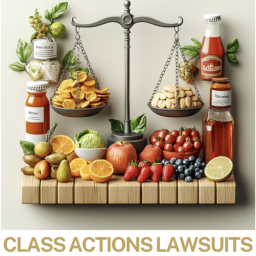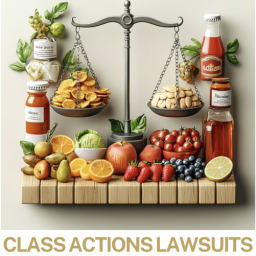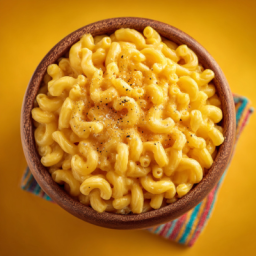
The following is a summary of relevant, notable Class Action Lawsuits that were filed during May 2025. Below is a summary of the plaintiff’s allegations. To request a copy of a particular complaint or for queries or further discussion, you’re welcome to reach out via email at [email protected].
1. Kratom-Related Death Spurs Wrongful Death and Consumer Fraud Class Action
Plaintiffs: Matthew Ade, as administrator of the estate of T.A., deceased
Defendants: Hard Eight Nutrition, LLC
Product Focus: Kratom powder sold under the “Kratomade” brand
Summary:
Filed in the Northern District of Texas, this lawsuit combines wrongful death and class action claims. The plaintiff alleges that Hard Eight Nutrition sold “Kratomade” without proper warnings about addiction or opioid-like effects. The lack of warnings allegedly led to the death of T.A., a 32-year-old man found deceased with an open packet of Kratomade.
The complaint claims the product contains mitragynine and 7-hydroxymitragynine, which act on the same brain receptors as morphine and heroin. It was sold online as a dietary supplement without medical guidance, child-resistant packaging, or addiction warnings—despite known risks.
The lawsuit cites increasing reports of kratom-related dependence, withdrawal, seizures, and death in medical literature. It also references FDA and DEA scrutiny of kratom’s legal status. The plaintiff argues that the product labeling violates Texas consumer protection laws, federal food and drug regulations, and common law duties of care.
Relief Sought: Compensatory and punitive damages, wrongful death damages, injunctive relief, corrective advertising, and class certification. Causes of action include fraudulent concealment, unjust enrichment, design defect, failure to warn, and deceptive trade practices.
2. Class Action Targets Kratom Supplement Marketing After Fatal Overdose
Plaintiffs: K.A., individually and as successor-in-interest to E.A., deceased
Defendants: Piping Rock Health Products, LLC
Product Focus: Kratom capsules sold under the “Piping Rock” brand
Summary:
Filed in the Central District of California, this wrongful death and class action lawsuit targets Piping Rock. The plaintiff alleges the company marketed kratom supplements without proper warnings. E.A., a 30-year-old consumer, allegedly died after using the product as directed.
The complaint claims Piping Rock marketed kratom as a safe dietary supplement. However, it contains active compounds known to cause addiction and overdose. The company allegedly failed to disclose that kratom affects opioid receptors. Warnings about adverse effects or the lack of FDA approval were also missing.
The lawsuit highlights that kratom’s safety profile is disputed. It cites FDA advisories and studies linking kratom to seizures, cardiac arrest, and death. The complaint also alleges unlawful product placement, with kratom marketed next to vitamins and herbal remedies, creating a false appearance of safety.
Relief Sought: Wrongful death damages, class-wide injunctive relief, corrective labeling, restitution, punitive damages, and attorneys’ fees. Causes of action include fraudulent concealment, failure to warn, and violations of California’s CLRA, UCL, FAL, and breach of warranty.
3. “No Artificial Preservatives” Claim on Pasta Sauce Challenged Over Use of Citric Acid
Plaintiffs: Arpine Antossyan
Defendants: The Kroger Co.
Product Focus: Simple Truth Organic™ pasta sauces
Summary:
Filed in the Superior Court of California, Los Angeles County, this lawsuit challenges Kroger’s “No Artificial Preservatives” claim. The plaintiff alleges the product contains citric acid, which she claims is synthetic and functions as a preservative.
According to the complaint, citric acid—when chemically manufactured—contradicts clean-label marketing. Consumers allegedly rely on these statements and pay a premium believing the sauce is preservative-free. The complaint cites FDA and USDA guidance that recognizes citric acid as a preservative, especially in acidic foods.
The lawsuit also raises broader concerns about misleading “No Artificial Preservatives” and “All Natural” claims. It alleges Kroger violated California’s CLRA, UCL, and FAL, and breached warranty obligations.
Relief Sought: Class certification, restitution, injunctive relief, corrective labeling, actual and punitive damages, and attorneys’ fees.
4. “Complete & Balanced” Dog Food Allegedly Contained Excessive Vitamin D
Plaintiffs: Helene Attias and Trisha Nadeau
Defendants: Mars Petcare US, Inc.
Product Focus: PEDIGREE Complete Nutrition Roasted Chicken & Vegetable Adult Dry Dog Food
Summary:
Filed in the Middle District of Tennessee, this lawsuit claims Mars Petcare falsely markets PEDIGREE dog food as “100% Complete & Balanced.” Independent tests allegedly found Vitamin D levels nearly five times above industry limits.
The plaintiffs’ dogs experienced vomiting, diarrhea, and other symptoms of Vitamin D toxicity. Testing revealed 14,282 IU/kg of Vitamin D, far exceeding the AAFCO maximum of 3,000 IU/kg. The plaintiffs allege this makes the product unsafe and the marketing misleading.
The complaint also challenges claims like “36 vitamins, minerals, and amino acids” and “made in the USA with the world’s finest ingredients.” Plaintiffs assert they would not have purchased the product had they known of the health risks.
Relief Sought: Class certification, restitution, damages, injunctive relief, and attorneys’ fees for violations of New York and Michigan consumer protection laws and breach of warranty.
5. “No Preservatives” Label on Carrot Juice Challenged Due to Citric Acid Content
Plaintiffs: Lindsay Basile
Defendants: Wm. Bolthouse Farms, Inc.
Product Focus: Bolthouse Farms 100% Carrot Juice
Summary:
Filed in the Eastern District of Pennsylvania, this lawsuit alleges that Bolthouse Farms falsely labels its 100% Carrot Juice as containing “No Preservatives.” The plaintiff claims the product includes citric acid, a compound widely recognized as a preservative.
The complaint asserts that citric acid is synthetically manufactured and added to acidic beverages like juice to inhibit microbial growth and oxidation. The plaintiff argues that Bolthouse uses the “No Preservatives” label to attract clean-label consumers, even though the product does not meet those expectations.
The lawsuit claims this misrepresentation violates consumer protection laws. It also states that the plaintiff would not have paid a premium for the product had she known it contained citric acid.
Relief Sought: Class certification, restitution, statutory and punitive damages, corrective labeling, injunctive relief, and attorneys’ fees.
6. Quaker Oats’ “Natural” Granola Bars Allegedly Contain Synthetic Preservatives
Plaintiff: JoAnn Brown
Defendant: The Quaker Oats Company
Product Focus: Quaker Chewy Granola Bars
Summary:
Filed in the Northern District of Illinois, this lawsuit alleges that Quaker Oats misleadingly labels its granola bars as “100% Natural.” The complaint claims the products contain synthetic tocopherols and corn syrup, which act as preservatives.
The plaintiff asserts that Quaker uses the “100% Natural” phrase to command a premium price. However, the use of processed additives allegedly undermines that claim. The lawsuit specifically targets tocopherols, which extend shelf life, and corn syrup, which is industrially produced.
Relief Sought: Class certification, monetary and punitive damages, restitution, corrective advertising, and injunctive relief.
7. Quaker Oats’ “Natural” Granola Bars Allegedly Contain Synthetic Preservatives
Plaintiff: JoAnn Brown
Defendant: The Quaker Oats Company
Product Focus: Quaker Chewy Granola Bars
Summary:
Filed in the Southern District of New York, this lawsuit alleges Kraft Heinz falsely advertises its Mac & Cheese Cups as having “No Artificial Preservatives.” The plaintiff claims the product contains citric acid, which serves a preservative function.
The complaint states that the plaintiff relied on the label when purchasing the product. He alleges that he would not have purchased it had he known citric acid was used for shelf life extension.
Relief Sought: Class certification, damages, corrective labeling, injunctive relief, and attorneys’ fees.
8. “No Artificial Preservatives” Claim on Mac & Cheese Cups Disputed Over Use of Citric Acid
Plaintiff: Patrick Bruno
Defendant: Kraft Heinz Foods Company
Product Focus: Kraft Macaroni & Cheese Cups (Original Flavor)
Summary:
Filed in the Central District of California, this lawsuit claims Nestlé falsely labels its Coffee Mate creamers as containing “No Preservatives.” The plaintiff argues that the product includes dipotassium phosphate, which stabilizes the product and inhibits spoilage.
The complaint alleges that this ingredient functions as a preservative. The lawsuit further claims that the marketing misleads health-conscious consumers who pay more for preservative-free products.
Relief Sought: Class certification, monetary damages, injunctive relief, corrective advertising, and attorneys’ fees.
9. “No Preservatives” Claim on Coffee Mate Creamers Disputed Over Dipotassium Phosphate
Plaintiff: Corinna Calangian
Defendant: Nestlé USA, Inc.
Product Focus: Coffee Mate Zero Sugar Creamer and Original Liquid Creamer
Summary:
Filed in the Southern District of New York, this lawsuit alleges Simple Mills falsely labels its crackers as containing “Nothing Artificial.” The complaint claims the product includes propylene glycol, a synthetic compound used to retain moisture.
The plaintiff asserts that health-conscious consumers are misled into believing the product is free of synthetic additives. The lawsuit contends this practice violates consumer protection laws.
Relief Sought: Class certification, actual and statutory damages, injunctive relief, corrective labeling, and attorneys’ fees.
10. “Nothing Artificial” Crackers Allegedly Contain Synthetic Ingredient Propylene Glycol
Plaintiff: Laura Furman
Defendant: Simple Mills, Inc.
Product Focus: Simple Mills Almond Flour Crackers (Farmhouse Cheddar flavor)
Summary:
Filed in the Eastern District of New York, this lawsuit claims Conagra falsely markets its popcorn as containing “Only Real Ingredients.” The complaint alleges the product includes synthetic tocopherols, used to prevent spoilage.
The plaintiff states that the inclusion of tocopherols contradicts the “natural” marketing claims. The lawsuit argues this misrepresentation misleads consumers and violates state consumer laws.
Relief Sought: Class certification, damages, injunctive relief, corrective labeling, and attorneys’ fees.
11. “Only Real Ingredients” Claim on Popcorn Challenged Over Use of Synthetic Tocopherols
Plaintiff: Julia Gibson
Defendant: Conagra Brands, Inc.
Product Focus: Orville Redenbacher’s Naturals Popcorn (Simply Salted, Light Simply Salted, Light Classic Butter & Sea Salt)
Summary:
Filed in the Northern District of California, this lawsuit alleges Handels falsely labels its Black Cherry flavor as containing only “Natural Flavors.” The plaintiff claims testing revealed artificial flavoring agents in the product.
The lawsuit argues that consumers reasonably expect only natural ingredients in products labeled this way. The complaint alleges that Handels’ marketing gives it an unfair advantage in the premium ice cream market.
Relief Sought: Class certification, damages, corrective advertising, injunctive relief, and attorneys’ fees.
12. Ice Cream Chain’s “Natural Flavors” Claim Disputed Over Artificial Flavoring
Plaintiff: Morgan Hendrix
Defendant: Handels Enterprises, Inc.
Product Focus: Handels Homemade Ice Cream (Black Cherry Flavor)
Summary:
Filed in the Central District of California, this lawsuit claims Dr Pepper/Seven Up markets Canada Dry Sparkling Water as “All Natural” despite containing citric acid and potassium benzoate.
The plaintiff asserts these are synthetic additives used for preservation and acidity control. The complaint highlights consumer demand for transparency and claims the labeling misleads health-conscious buyers.
Relief Sought: Class certification, restitution, injunctive relief, damages, and attorneys’ fees.
13. “All Natural” Canada Dry Sparkling Water Allegedly Contains Synthetic Additives
Plaintiff: Maral Joukjian
Defendant: Dr Pepper/Seven Up, Inc.
Product Focus: Canada Dry Sparkling Seltzer Water (All Flavors)
Summary:
Filed in the Central District of California, this class action claims that Dr Pepper/Seven Up deceptively markets its Canada Dry Sparkling Water as “All Natural” despite containing synthetic citric acid and potassium benzoate, both of which serve preservative and acidity regulation functions.
Plaintiff Maral Joukjian alleges that the presence of these synthetic ingredients contradicts the product’s “All Natural” labeling and misleads health-conscious consumers who are willing to pay a premium for clean-label beverages. The complaint highlights that citric acid is typically manufactured through fermentation processes involving genetically modified microorganisms, while potassium benzoate is an FDA-recognized chemical preservative.
This case adds to the growing wave of litigation targeting natural claims in beverage marketing, particularly as consumers increasingly seek transparency around processing methods and ingredient sourcing.
Relief Sought: Class certification, restitution, injunctive relief, statutory and punitive damages, and attorneys’ fees, asserting violations of California’s UCL, CLRA, and FAL, along with breach of warranty and unjust enrichment.
14. “Plant-Based” Supplement Allegedly Contains Animal-Derived Ingredients
Plaintiff: Molly Kopels
Defendant: Evig, LLC (d/b/a Just Thrive)
Product Focus: Just Thrive Vegan Omega-3 Supplement
Summary:
Filed in the Northern District of Illinois, this class action accuses Evig, LLC of misleading consumers by marketing its “Just Thrive Vegan Omega-3” as a fully plant-based supplement while allegedly using animal-derived gelatin in the capsules.
Plaintiff Molly Kopels claims that she purchased the product based on its representation as “100% vegan” and “plant-based.” However, third-party lab testing allegedly revealed the presence of gelatin, which is commonly sourced from animal collagen. The complaint asserts that this misrepresentation is particularly harmful to consumers who follow a vegan lifestyle and rely on labeling to make informed ethical and dietary decisions.
This case underscores increasing legal risk for dietary supplement brands making vegan, plant-based, or cruelty-free claims, particularly as consumers and advocacy groups scrutinize sourcing transparency and third-party testing.
Relief Sought: Class certification, monetary damages, restitution, corrective advertising, injunctive relief, and attorneys’ fees for violations of the Illinois Consumer Fraud and Deceptive Business Practices Act, breach of warranty, and unjust enrichment.
15. Fruit Snack Promotion Allegedly Misleads Consumers with Undelivered Free Book Offer
Plaintiff: Jennifer Lesko
Defendant: General Mills, Inc. and Lostmy.Name Ltd d/b/a Wonderbly
Product Focus: Mott’s Fruit Flavored Snacks
Summary:
Filed in the Superior Court of California, County of San Bernardino, this class action alleges that General Mills and its promotional partner Wonderbly falsely advertised a “free book” promotion on Mott’s Fruit Snacks. The packaging claimed purchasers would receive a personalized book “worth over $35” by redeeming a code online. However, consumers like Jennifer Lesko were allegedly redirected to a page offering only a 40% discount, contrary to the advertised promotion.
The complaint claims that the promotional campaign was terminated prematurely without adequate notice, despite the packaging and advertising still promoting the free book offer. Plaintiff alleges that this misrepresentation caused consumers to overpay for the product, thinking they were receiving a higher-value bonus item.
The case underscores the litigation risk around CPG marketing campaigns, particularly on-pack promotions and digital redemption offers, where failure to deliver the promised benefit can give rise to UCL and FAL claims.
Relief Sought: Class certification, actual and punitive damages, restitution, injunctive relief, and corrective advertising, asserting violations of California’s False Advertising Law and Unfair Competition Law.
16. “No Sugar Added” Juice Label Allegedly Misleading Due to Naturally Occurring Sugars
Plaintiff: Tracey Luxton
Defendant: Bb Company, LLC
Product Focus: Apple & Eve 100% Juice (No Sugar Added)
Summary:
Filed in the Southern District of New York, this class action alleges that Bb Company, LLC falsely markets its Apple & Eve juice as having “No Sugar Added” when the juice contains high levels of naturally occurring sugars, misleading consumers about the product’s healthfulness.
Plaintiff Tracey Luxton argues that the packaging leads consumers to believe the juice is healthier or contains less sugar than competing products, when in reality, it contains substantial amounts of sugar from the fruit itself. The complaint further alleges that this labeling violates FDA regulations, which require a disclosure statement when a product’s sugar content is not low and no sugar is added.
The lawsuit emphasizes growing regulatory and consumer scrutiny surrounding sugar-related claims in fruit-based beverages, especially where implied health benefits are contradicted by nutritional content.
Relief Sought: Class certification, statutory and actual damages, restitution, injunctive relief, corrective advertising, and attorneys’ fees, asserting violations of New York General Business Law §§ 349 and 350, breach of warranty, and unjust enrichment.
17. “Zero Sugar” Soda Allegedly Contains Hidden Sweeteners, Misleading Consumers
Plaintiff: Maria Moledina
Defendant: Zevia PBC
Product Focus: Zevia Zero Calorie Soda (All Flavors)
Summary:
Filed in the Northern District of California, this class action alleges that Zevia misleads consumers by labeling its sodas as “Zero Sugar” while failing to clearly disclose that the beverages are sweetened with stevia and contain significant levels of erythritol, a sugar alcohol.
Plaintiff Maria Moledina contends that health-conscious consumers are led to believe the products are free from any sweeteners when, in fact, erythritol has been linked in recent studies to potential health risks, including cardiovascular concerns. The complaint further argues that Zevia benefits from the growing demand for no-sugar, clean-label beverages by positioning its products as healthier alternatives without adequately clarifying the presence and quantity of erythritol.
This case highlights increasing litigation risk for beverage companies making “zero sugar” or “natural sweetener” claims, particularly when those claims may obscure the use of ingredients that raise health-related questions or require clearer disclosure under FDA guidelines.
Relief Sought: Class certification, monetary damages, restitution, injunctive relief, and attorneys’ fees for alleged violations of California’s UCL, CLRA, and FAL, along with breach of warranty and unjust enrichment.
18. “No Sugar Added” Chocolate Allegedly Deceptive Due to Sugar Alcohol Content
Plaintiff: Sepideh Noohi
Defendant: The Hershey Company
Product Focus: Lily’s No Sugar Added Chocolate Products
Summary:
Filed in the Northern District of California, this class action alleges that The Hershey Company deceptively markets its Lily’s brand chocolate as “No Sugar Added” without disclosing the presence of sugar alcohols like erythritol, which are used as sweeteners.
Plaintiff Sepideh Noohi claims that consumers are misled into believing that the products are free from all sweeteners or sugars, when in fact they contain substantial amounts of erythritol—an ingredient associated with metabolic effects and potential health concerns. The lawsuit further argues that FDA regulations require a disclosure statement when such claims are made, especially if the product is not low in calories or sugar alcohols.
This case reinforces ongoing litigation trends targeting “no sugar added” and “zero sugar” claims on confectionery and snack foods, especially where the sugar reduction is offset by sugar alcohols that consumers may wish to avoid.
Relief Sought: Class certification, actual and statutory damages, restitution, injunctive relief, corrective advertising, and attorneys’ fees, asserting violations of California’s CLRA, UCL, and FAL, as well as breach of warranty and unjust enrichment.
19. Vitamin C Gummies Allegedly Mislead on Dosage and Serving Size
Plaintiff: Tamika Nyman
Defendant: NHS US LLC (Nature’s Bounty)
Product Focus: Nature’s Bounty Vitamin C Gummies
Summary:
Filed in the Supreme Court of the State of New York, Kings County, this class action alleges that Nature’s Bounty misleads consumers by labeling its Vitamin C Gummies with “80 Gummies” and “250 mg per serving” on the front panel, causing consumers to believe that each gummy contains 250 mg of Vitamin C. In reality, the serving size is two gummies—meaning each gummy contains only 125 mg and the bottle contains only 40 servings. The complaint alleges this labeling misleads consumers about the product’s dosage, supply quantity, and value.
The complaint emphasizes that key serving size disclosures appear only in fine print on the back, in contrast to similar products from competitors that clearly state “40-day supply” or per-gummy dosages on the front label. The lawsuit invokes New York’s General Business Law §§ 349 and 350 and alleges violations of state packaging and labeling regulations.
Relief Sought: Class certification, actual damages, restitution, and injunctive relief, including corrective labeling, for violations of New York consumer protection statutes and regulatory labeling requirements.
20. “No Preservatives” Claim on Canned Corn Allegedly Misleading Due to Citric Acid Content
Plaintiff: Sarah Oh
Defendant: Seneca Foods Corporation
Product Focus: Seneca Foods No Salt Added Whole Kernel Canned Corn
Summary:
Filed in the Northern District of California, this proposed class action alleges that Seneca Foods misleadingly labels its canned corn as containing “No Preservatives” despite listing citric acid as an ingredient. Plaintiff Sarah Oh contends that citric acid is widely recognized—and used—as a preservative, and its presence renders the “No Preservatives” claim false and deceptive under consumer protection laws.
The complaint emphasizes that consumers are increasingly avoiding preservatives due to health concerns, and that claims like “No Preservatives” influence purchasing decisions. Plaintiff also references FDA guidance, industry standards, and consumer surveys to support the assertion that citric acid is commonly perceived as a preservative.
Relief Sought: Class certification, injunctive relief, restitution, actual and statutory damages, and attorneys’ fees, asserting violations of the California Consumers Legal Remedies Act (CLRA), False Advertising Law (FAL), and Unfair Competition Law (UCL).
21. “No High Fructose Corn Syrup” Label on Triscuit Crackers Allegedly Deceptive Due to Ingredient Substitution
Plaintiff: Kristen Pearson
Defendant: Mondelēz Global LLC
Product Focus: Triscuit Original Whole Grain Wheat Crackers
Summary:
Filed in the Northern District of California, this class action alleges that Mondelēz deceptively labels Triscuit crackers as containing “No High Fructose Corn Syrup,” while using maltodextrin and other processed ingredients that are similar in function and nutritional profile to high fructose corn syrup. Plaintiff Kristen Pearson contends that this claim misleads health-conscious consumers into believing the product is free of highly processed sugars.
The complaint argues that the label exploits consumer confusion and that maltodextrin—often derived from corn and used as a sweetener—functions similarly to high fructose corn syrup in processed foods. The suit asserts violations of California’s Unfair Competition Law (UCL), False Advertising Law (FAL), and Consumers Legal Remedies Act (CLRA).
Relief Sought: Class certification, injunctive relief, restitution, actual and statutory damages, and attorneys’ fees, on behalf of California consumers misled by the labeling claims.
22. “No Artificial Flavors” Claim on Crown Royal Whisky Allegedly Deceptive
Plaintiff: Stephanie Pusateri
Defendant: Diageo North America, Inc.
Product Focus: Crown Royal Whisky – Apple, Peach, and Vanilla Flavored Varieties
Summary:
Filed in the Northern District of California, this class action alleges that Diageo falsely markets its flavored Crown Royal whiskies as containing “No Artificial Flavors” despite using synthetic flavoring agents such as ethyl vanillin and other lab-created compounds. Plaintiff Stephanie Pusateri claims these ingredients are chemically manufactured and not derived from natural sources, contradicting the product’s front-label representations.
The complaint underscores that consumers increasingly seek out clean-label products and are willing to pay a premium for those made without artificial additives. The plaintiff contends that Diageo’s labeling violates consumer trust and federal standards, as well as California’s consumer protection statutes.
Relief Sought: Class certification, injunctive relief, actual and statutory damages, restitution, and attorneys’ fees, asserting violations of California’s CLRA, FAL, and UCL, as well as common law fraud and unjust enrichment.
23. Dove Body Wash with “MicroMoisture” Allegedly Misleads About Moisturizing Claims
Plaintiff: Susan Roberts
Defendant: Unilever United States, Inc.
Product Focus: Dove Deep Moisture Body Wash and similar Dove body wash products
Summary:
Filed in the Northern District of California, this class action claims that Unilever deceptively markets Dove body wash products using terms like “Deep Moisture,” “#1 Dermatologist Recommended,” and “MicroMoisture” to imply superior moisturizing effects. Plaintiff Susan Roberts alleges that in reality, these products contain common surfactants (such as sodium lauroyl isethionate and cocamidopropyl betaine) that strip the skin of natural oils and do not provide the moisturization claimed.
The complaint further alleges that the marketing misleads reasonable consumers into believing Dove body wash actively nourishes and hydrates the skin, when it performs no better than conventional soap or competing products without such claims. The suit asserts violations of California’s CLRA, FAL, and UCL.
Relief Sought: Class certification, injunctive relief, restitution, actual and statutory damages, and attorneys’ fees, on behalf of consumers who purchased Dove body wash based on misleading advertising.
24. “Brain + Body Nutrition” Bars Allegedly Mislead on Functional Ingredient Claims
Plaintiff: Jasmine Shahinian
Defendant: IQBAR Inc.
Product Focus: IQBAR Protein Bars (various flavors)
Summary:
Filed in the Northern District of California, this proposed class action alleges that IQBAR falsely advertises its protein bars as delivering specific functional benefits for the “brain and body,” including improved cognition, clarity, focus, and mood, without competent scientific substantiation. Plaintiff Jasmine Shahinian claims these representations—alongside terms like “Brain + Body Nutrition” and ingredient callouts such as lion’s mane, omega-3s, and flavonoids—are intended to create the impression that consuming the bars will provide clinically proven mental performance benefits.
The complaint alleges that these claims amount to unlawful structure/function representations under FDA regulations and that reasonable consumers are misled into purchasing the products based on unfounded health benefit claims.
Relief Sought: Class certification, injunctive relief, restitution, actual and statutory damages, and attorneys’ fees, asserting violations of California’s CLRA, FAL, and UCL, as well as breach of warranty and unjust enrichment.
25. “No Sugar Added” Claim on Apple Juice Allegedly Deceptive for Diabetic Consumers
Plaintiff: Robert Sheppard
Defendant: Mott’s LLP
Product Focus: Mott’s 100% Apple Juice
Summary:
Filed in the Northern District of California, this class action alleges that Mott’s misleadingly markets its apple juice as having “No Sugar Added,” which could deceive diabetic consumers into believing the product is sugar-free or low in sugar. Plaintiff Robert Sheppard, who has Type 2 diabetes, claims he purchased the juice under the impression that it would not significantly impact his blood sugar levels.
The complaint highlights that although no sugar is added, the juice naturally contains high levels of sugar from fruit, approximately 24g per serving. It argues that the “No Sugar Added” label fails to adequately warn consumers, particularly those with health conditions, that the juice still has a high sugar content. The case raises issues under California’s CLRA, FAL, and UCL, as well as federal labeling rules.
Relief Sought: Class certification, restitution, statutory and actual damages, injunctive relief, and attorneys’ fees, claiming violations of state consumer protection laws, breach of warranty, and unjust enrichment.
26. “No Sugar Added” Label on Frappuccino Allegedly Misleads About Total Sugar Content
Plaintiff: Kelly Strauss
Defendant: Starbucks Corporation
Product Focus: Starbucks Bottled Frappuccino Coffee Drink – Vanilla Flavor
Summary:
Filed in the Northern District of California, this proposed class action alleges that Starbucks misleads consumers by labeling its Vanilla Bottled Frappuccino as having “No Sugar Added” despite containing high levels of naturally occurring sugars—approximately 33 grams per bottle. Plaintiff Kelly Strauss, a diabetic consumer, claims she was misled into believing the product was sugar-free or significantly lower in sugar, and purchased it expecting it to be safe for diabetic consumption.
The complaint emphasizes that the “No Sugar Added” claim, without proper qualification, violates both federal labeling regulations and consumer expectations, especially for health-conscious individuals and those managing diabetes. It alleges that Starbucks failed to include the required disclosure that the product is not low in calories.
Relief Sought: Class certification, restitution, injunctive relief, statutory and actual damages, and attorneys’ fees, based on violations of California’s UCL, CLRA, FAL, and federal labeling laws.
27. “No Preservatives” Claim on Chips Allegedly Misleads Consumers Due to Citric Acid Content
Plaintiff: Alyssa Tackett
Defendant: Wise Foods, Inc.
Product Focus: Wise Branded Potato Chips
Summary:
Filed in the Northern District of California, this class action alleges that Wise Foods falsely markets its potato chips as containing “No Preservatives” despite listing citric acid as an ingredient. Plaintiff Alyssa Tackett contends that citric acid functions as a preservative by inhibiting spoilage and bacterial growth, and that its presence renders the “No Preservatives” claim deceptive.
The lawsuit points out that citric acid is widely recognized and used in the food industry as a preservative, and that Wise’s labeling misleads consumers into believing the chips are free from synthetic or chemical preservatives. The complaint asserts violations of California’s False Advertising Law (FAL), Unfair Competition Law (UCL), and Consumer Legal Remedies Act (CLRA), along with breach of warranty.
Relief Sought: Class certification, restitution, statutory and actual damages, injunctive relief, and attorneys’ fees.
28. Great Value Oatmeal Allegedly Misleads with “No Preservatives” Claim Due to Citric Acid Use
Plaintiff: Marilyn Thomas
Defendant: Walmart Inc.
Product Focus: Great Value Oatmeal (various flavors including Apple Cinnamon)
Summary:
Filed in the Northern District of California, this class action claims that Walmart falsely labels its Great Value branded oatmeal as containing “No Preservatives,” while the ingredient list includes citric acid, a substance known to function as a preservative. Plaintiff Marilyn Thomas argues that consumers reasonably interpret “No Preservatives” to mean that the product is free of chemical additives used to extend shelf life.
The complaint emphasizes that citric acid inhibits microbial growth and is widely recognized in the food industry as a preservative, contradicting the front-label claim. The lawsuit alleges that Walmart’s labeling practices deceive health-conscious consumers and violate federal and California consumer protection laws.
Relief Sought: Class certification, restitution, actual and statutory damages, injunctive relief, and attorneys’ fees, citing violations of the CLRA,FAL, UCL, and common law misrepresentation and warranty.
What is a Class Action?
A class action is a type of lawsuit where one or more plaintiffs file on behalf of a larger group with similar claims. In the food and beverage sector, class actions often arise from misleading labels, deceptive advertising, or non-compliant ingredients. These lawsuits can result in major financial penalties and brand damage. Proactively monitoring compliance and emerging litigation trends is essential to reducing risk.
For more insights or to receive any of the full complaints, contact us at [email protected].







